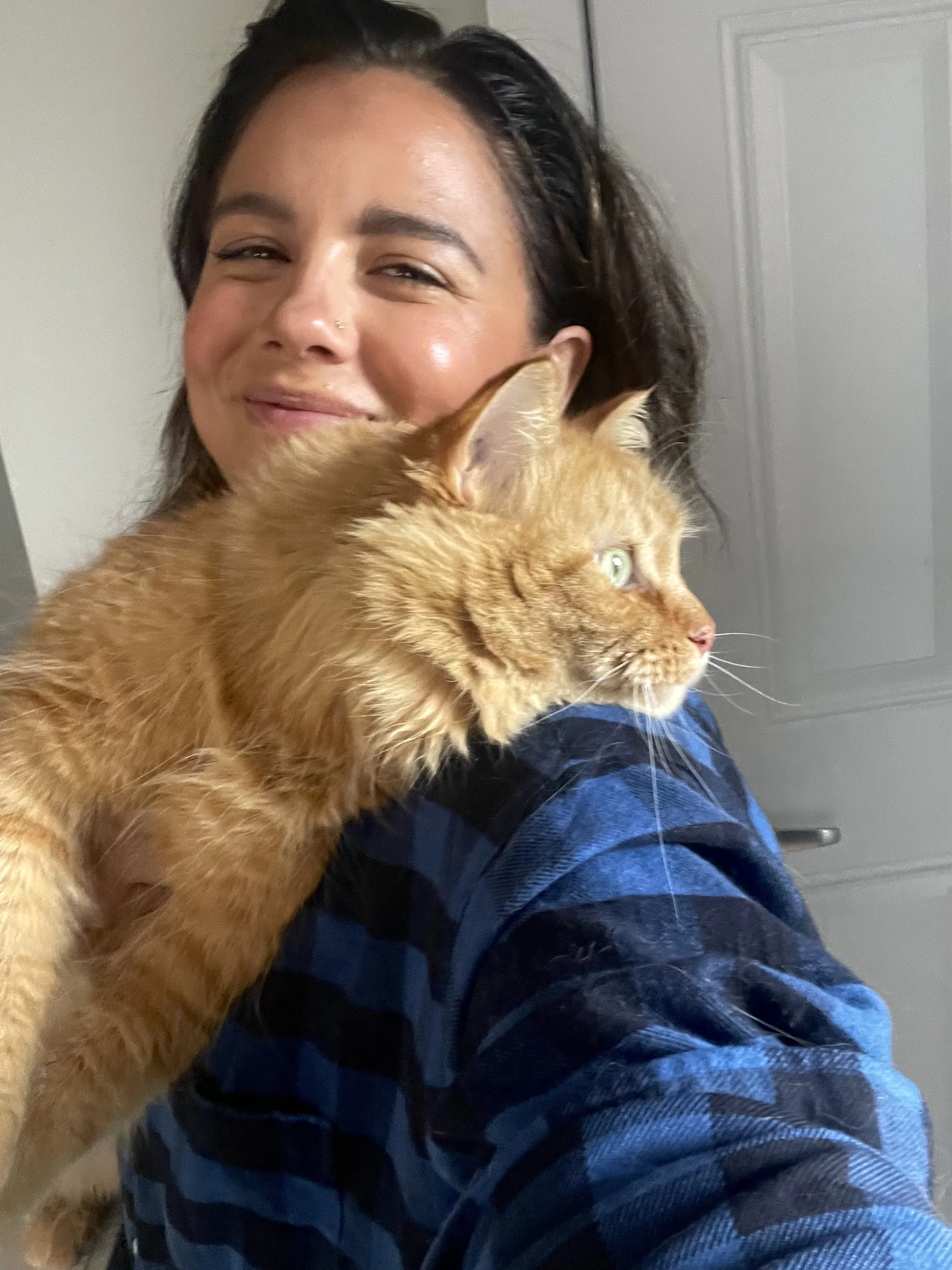Hi, I’m Brittany.
I’m so grateful you’re here.
Like so many people, I know the pain of feeling like I belong nowhere and to no one in this world.
To feel lost, unsure of who your people are or where you fit in can feel like a constant ache deep within your core that no medicine can ever quite touch.
Through my practice of blending modern medicine and holistic approaches, along with personal therapeutic work, I have discovered the importance of one, among many, traditions valued by my ancestors for generations.
By safely exploring our stories, with the support of friends, family, or trusted counsellors, we can gain insight into where we come from and to whom we belong, which is ultimately, and most importantly, ourselves. Along the way, we might just reconnect or discover for the first time our community and our people, too. And how utterly beautiful that can be.
Me at the age of six with Baba.
Me at the age of seven and my Mennonite grandmother.
Whom and where can I call home?
In the late 1980’s, I was born into the arms of a social worker during an era known as the Sixties Scoop in Canada. It was common government practice to remove Indigenous children from our homes and communities, placing us largely with non-Indigenous families throughout Canada and the world. My name, my background, and where I came from was hidden from me for most of my life.
I was raised within a large extended Mennonite family, which had fostered and adopted more than 200 Indigenous children over the course of my grandparents’ lives. I grew up carrying many painful beliefs about myself and my people, one of which was exquisitely tender: there must have been something wrong with us to have not been raised within our biological families and communities.
I internalized the message that there must have been something wrong with me.
For most of my life, I tried to be quiet and good. Because quiet and good meant I wouldn’t be taken away again.
I obeyed the rules. I spent my adolescence studying on evenings and weekends and during lunch hours. I received scholarships, entered medical school at a young age and graduated a few years later.
But, still, I could not escape the pain of feeling like I belonged to no one and nothing, least of all myself.
Eventually, I realized I could no longer run from the pain and the loss. I began to slowly pull at the thread of the narrative I’d been told my whole life. That I was “lucky.” That I “should be grateful.” I began to examine the pieces of my story through my own lens, with my own understanding, in my own way.
Our stories matter.
Like many things in life, exploring our stories can be scary and unpredictable. At times the brush in the wilderness can feel so thick, the night so dark, that we are unsure we will ever find our way out. But then dawn creeps in and so does that shimmer of light illuminating our next step forward.
Our stories, and those of our ancestors and our communities, filled with all the tenderness and beauty and flaws that make us who we are, are what carry us on.
Our stories are what connect us with ourselves and each other.
Our stories, and the almost always terrifying act of sharing them, are what allow each of us to find a home within ourselves and a sense of belonging that can never be stripped from us.
I’m a family physician, registered with the College of Family Physicians of Canada
Lecturer with the University of Manitoba Max Rady College of Medicine
Candidate for a Master’s of Liberal Arts (ALM) in Creative Writing and Literature at Harvard University
Your story, and the stories of your ancestors, matter.
I know you’ve felt lost, at times broken and confused. I know you’re searching for a way to understand your life in a deeper way, searching for something that can help you make sense of it all. And I know how overwhelming it can be. I invite you to share in my story and I look forward to learning more about yours. We weren’t meant to do this thing alone.
Books
Storytelling Courses





